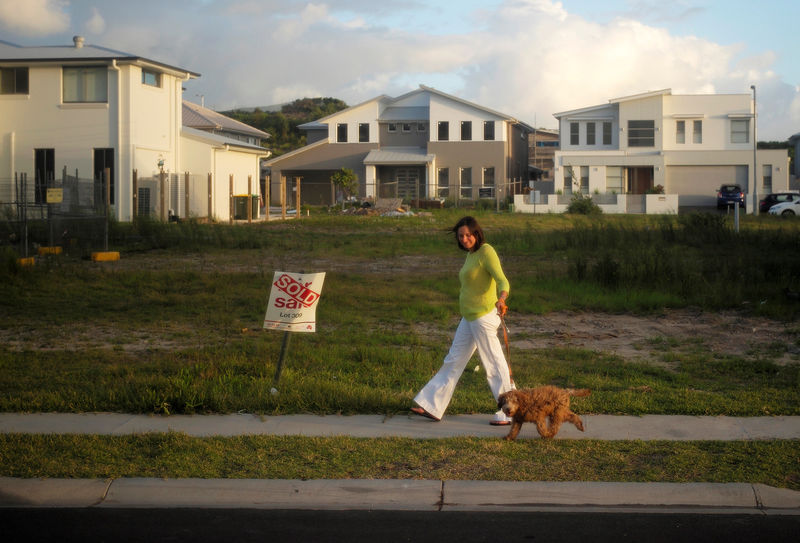SYDNEY, May 23 (Reuters) - Australia has become the world's most active market for securitised home loans, with sales at their highest in a decade as lenders seek to take advantage of surging demand from yield-starved Japanese investors.
Issues of residential mortgage-backed securities (RMBS) total of A$67 billion, with A$12 billion ($9 billion) sold so far this year.
The strong overseas demand comes amid warnings over the country frothy property market from regulators, the central bank and the International Monetary.
Home prices in Australia's two biggest cities of Sydney and Melbourne have doubled since 2009.
Offshore buying accounts for as much as half of certain Australian bond offers, estimated Will Mortimer, head of securitised products at Citibank Australia. International investors had completely vanished after the 2008-2009 global financial crisis.
While demand from Europe, the U.S. and Asia has been growing, Japan is the clear stand out.
"We've seen the biggest increase coming from Japan," said James Austin, chief financial officer of non-bank lender FirstMac in Brisbane who sold a large RMBS issue earlier this year. He said around 10 Japanese investors, from banks to life insurances and financial services, are actively engaging with FirstMac.
Industry players said a Japanese institution recently bought a A$1.5 billion parcel in an Australian RMBS offer.
With near zero or even negative yields paid by Japanese government bonds, returns of 2.5 percent to 3 percent paid by triple A Australian RMBS are drawing interest.
Undeterred by risks that home prices could collapse, investors say ample protection is provided by robust RMBS structures and strict lending standards.
"Australia is a well regulated market" said Tim Ledingham, treasurer at regional lender Bank of Queensland BOQ.AX which sold A$120 million of RMBS to Japanese accounts earlier this year.
Only a fraction of home loans are securitised and around 2 percent of Australian RMBS are in arrears by 30 days, well below Spain's 6 percent and Italy's 5 percent.
Even at the peak of the global credit crisis, there has never been an Australian RMBS default, unlike the United States where investors lost billions of dollars in similar debt.
"We've done a lot of analysis on the potential downside risk but we think it is a securitisation market with a long history, and even if a crisis happened of the magnitude of the Lehman Brothers shock we would not expect a loss there," said a Japanese investor in Tokyo.
He asked not to be named for sensitivity reasons.
Unlike the United States, investors have full loan recourse meaning a homeowner defaulting on his debt obligations cannot walk away. ($1 = 1.3356 Australian dollars)
